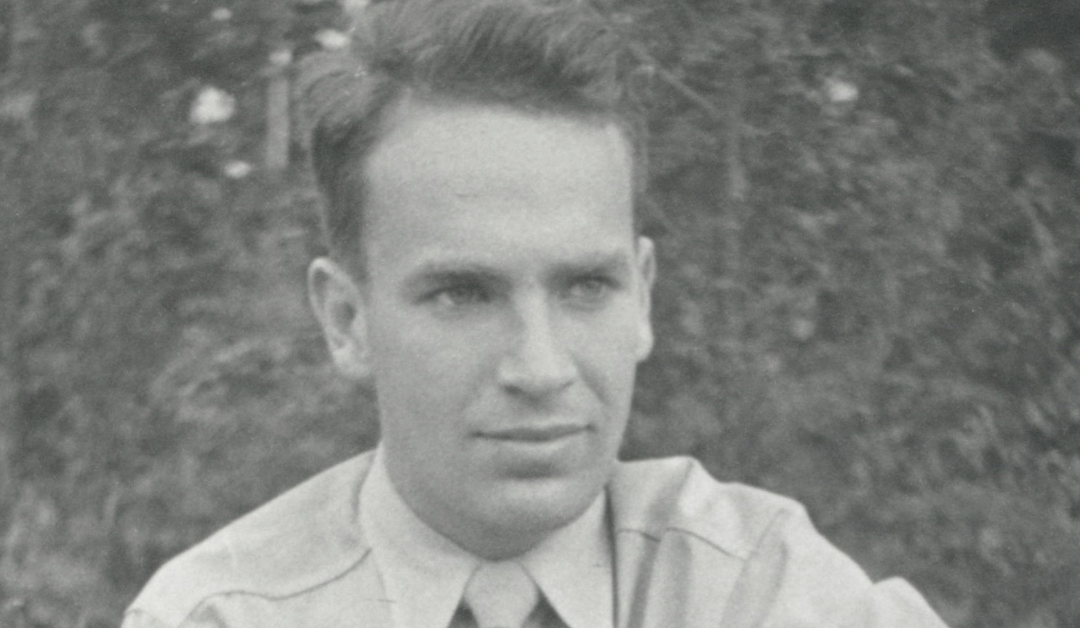With aging, each passing day brings greater urgency to get things done in the inexorably evaporating time of my life. Not just all the things I must do for my job but also the things I must do to nourish family relationships, and just to keep my head above the rising waters of modern life. Since the Covid lockdowns, little can be done without turning on a computer. Unfortunately, every computer session begins by answering enough emails and texts to orient myself to a new day. Then I move on to tackle the crushing list. You know the list. Things like balancing a checkbook, paying taxes and bills, scheduling appointments and travel, cleaning and repairing chores, exercising, writing (such as writing this blog), and even, after all, catching up on some streamed show or baseball game to ease my mind and finally nod off. I look at everyone else who seems to accomplish more than me and wonder what they know that I don’t. What is their secret?
My father, the hardest-working person I’ve ever known, got a lot of things done. In the Army, he learned that getting things done was the key to advancement up the ranks. When I was growing up, he was impatient with my lack of discipline and tried to teach me time management. I reacted to his advice like it was bourgeois nonsense, springing, I reasoned, like most of his ideas, from his stifling, suffocating 1950s values. Like most young people, I thought I knew better. Heck, it was the 60’s and 70’s. Could there be any doubt we knew better than the adults before us? You know, the ones who saved the world in the second world war. What could they possibly know?
I left home believing I was too smart to need time management. In college, law school, and even as a young lawyer, my planning and time management were all in my head. The future was laid out for me there like the plot of a movie I had already seen. I thought a lot of scheduling was an exercise in unnecessary paranoia. I had plenty of hubris; not enough dread. There were a few disasters here and there because of this insouciance, but I considered these mix-ups part of my absent-minded charm, and most people around me agreed. Of course, I still had plenty of brain cells in those days and could schedule, organize, and prioritize on the fly.
In my forties, the jig was up. Divorced, I was trying to coordinate my complex work and travel schedule, the demands of hundreds of corporate employees with a joint custody schedule that included my two sons’ school and extracurricular activities. Scheduling and on-time performance for these efforts was now my responsibility, and I was held accountable. My right to joint custody and my job were at stake. My second wife observed the mounting chaos: “You’re forty. Absentmindedness isn’t cute anymore. You are just disorganized. And you need to change.” I buckled down and took a Franklin Planner course, a detailed planning regimen requiring yearly, monthly, and daily planning all in a large notebook, the eponymous Franklin Planner, that you carry with you everywhere so that it can dominate every aspect of your life. You learn to prioritize the important over the unimportant and to regard the urgency expressed by others as less relevant to your priorities. You don’t lose the planner because it contains your entire life and guides your every minute in your own meticulous, tiny handwriting.
I changed, but the process was agonizing. I stayed employed and kept my right to joint custody. I still have the detailed notes, lists, and journals that reflect the daily struggle and the odds overcome during those days.
These days, my life, though hectic, is less complicated. My children are grown and have their own schedules. Now many more sophisticated tools make paper organizers look quaint. Ubiquitous computers, phones, tablets, and watches all contain sophisticated, embedded, and sometimes synchronized organizers and reminder programs. You can dictate tasks to your phone, which will later remind you to do them. No doubt someone at your home or work is using all these tools to schedule you whether you like it or not. Even without human prompting, your phone organizes you whether you like it or not. This morning, when I got in my car, it showed me the route to the track where I run in the morning. Later, it gave me directions to work after suggesting I stop at a donut shop to which I occasionally detour. Never did I ask for this guidance. The computer just knew I wanted that donut.
Yet somehow, despite all this high-tech help, things are getting out of control again. Whenever I look at a computer or worksheet, something interrupts me, and I lose focus on the task at hand. An in-box must be cleaned of junk to discover the real emails. Woeful email complaints confront your psyche and demand your focus. Can you solve this problem quickly with a response, or must a new task be scheduled? A desperate plea for money worries you about a friend or relative’s or destitute politician’s well-being. Someone on Facebook or Instagram wants you to know how much cooler they are than you. Texts flash from friend and foe alike. While in the middle of doing anything, a notification pops up. Some politician or other is always doing something deplorable in the eyes of some other politician. You must constantly decide whether these new developments require you to spend the rest of your day in anxiety or rage.
What is lacking today is not the capacity to schedule a task but the focus to perform the tasks on the schedule.
In early May 2020, I was prohibited from going to work by the lockdowns that took all of our lives off track. My father had died, and my mother was dying. Deprived of my everyday challenges, I traveled to Ohio to try to clean out their garage. Among my many discoveries in that garage were boxes of printed notepads on which was written the simple secret that my father used to get things done in the 1960s, the secret he had unsuccessfully tried to teach me.
This secret was first taught by Ivy Lee, an efficiency expert and one of the originators of the modern science of public relations, to Charles Schwab, the head of Bethlehem Steel, in 1918.
The method is deceptively simple. On a sheet of paper, you list the six most important things you must do the next day in order of priority. The next day you put that piece of paper in your pocket and tackle No. 1. Do not move on until you finish that task. You may only complete one or two tasks, but you will have done the most important things. What you still need to get done goes on tomorrow’s list–if it is still essential.
The legend is that Ivy Lee let Charles Schwab decide whether or not to pay him for the short advice session where he passed on this secret. Charles Schwab decided to pay Mr. Lee $25,000. That’s more than $400,000 in today’s money. Mr. Schwab (no relation to the discount stock brokerage) and Mr. Ivy had events in their later lives that led some to doubt that they had the answer to everything, including time management. But in the sixties, the Ivy Method was discovered again and recommended by many self-help regimens. It appears to be in the public domain.
One of those who discovered this method in the ’60’s was my father. As with many of his other discoveries of ideas that excited him, there was a season of obsession. He designed and created his own notepads and printed up boxes of them. Each sheet could be dated, and then there was the list on which you wrote your six things to do that day. On the flip side of each sheet was the origin story of the Ivy Lee method. He gave his nine children the notepads and expected us to use them. I never used one sheet. I don’t know about my brothers and sisters, but boxes of unused pads were still piled up in the garage sixty years later.
I could not carry much home from that garage in 2020, but I took one sheet from one of my father’s notepads. As the lockdowns began to ease, I needed help getting my work routines back. Once again, I was having trouble getting things done. My wife had some pads made from the single sheet rescued from my parents’ garage, and I finally tried the Ivy Lee Method. There is no doubt that filling out the daily sheets on these pads in the months and years since then has helped me and others I have convinced to try it. Piles of used sheets show dozens of tasks I might never have started. Now they are done.
Why does this century-old system seem to work better than all the sophisticated systems on our devices? I have six ideas:
1. The planning session is short, yet it requires a daily and specific investment that becomes a routine, a good habit. This good habit can be initiated in just a few minutes and hardly appears daunting or impossible—which is how a Franklin Planner looks to me today.
2. Like the tasks written on it, the sheet of paper becomes your focus. We are constantly distracted, but by placing the paper on your desk and carrying it in your pocket, you can always return your focus to task No. 1. Then
3. Unlike your phone or computer, a piece of paper cannot interrupt you. It just sits there, encouraging you to concentrate on Task 1, then 2, before returning to the computer where texts, emails, and distractions abide. Even when you return to those devices, you can always look down at your desk and regain focus.
4. Every day is a new day. Carrying around a big planner filled with unreached (and sometimes unreachable) aspirations results in the carryover of disappointments and failures as well as successes. With extraordinary effort, that planner can change your life, but the intensity of the method can be downright scary. With this method, every day is a new sheet of paper with its own chance to succeed. There is only today, and you can do it for today. Tomorrow there will be a new blank sheet of paper.
5. You can teach this method to anybody. I’m now teaching it to you.
6. If you finish your list by 10:00 a.m. each day, you need to schedule more significant tasks. If you never get past No. 1, you need to break up Task No. 1 into six smaller tasks. Six is the ideal number of significant things a person can accomplish in a productive day. Does it need saying that if you focus on too many things, nothing can get done?
My father tried to give me the gift of this method. I rejected it, but now that it is helping me 60 years later, I can pass it on to you. Completely free of charge.
Here is a pdf of my father’s notepad.
Please put it on your desktop. You can print it out at the end of each day when you have a moment to plan. You are getting the method, as did Charles Schwab, for free. With a trip to a Fed Ex and a small investment, you can create your own notepads just like my father, and later my wife, did for me. Give it a try. Let me know how it works for you. Don’t send money. Teach it to someone else.


Recent Comments